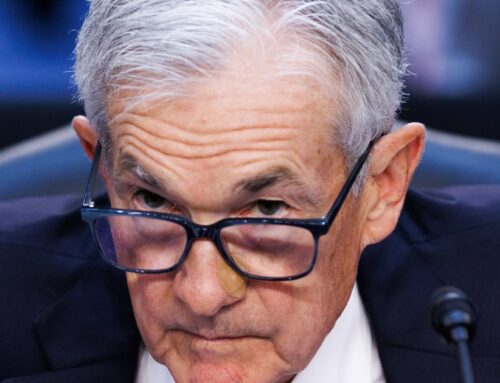Meta’s India penalty turns spotlight on consent economics | Advertising
November 5, 2025
When it ruled this week, the National Company Law Appellate Tribunal (NCLAT) delivered a nuanced verdict: it upheld a INR 213.14 crore penalty on Meta Platforms and WhatsApp for abuse of dominance while setting aside a sweeping five-year data-sharing ban. For brands, agencies and marketers, the case is far more than a legal footnote. It signals how competition law, privacy and data use are converging with clear implications for digital campaigns and platform strategy.
The dispute stems from WhatsApp’s January 2021 privacy-policy update, which required Indian users to accept expanded data-sharing with Meta or risk losing access. The Competition Commission of India (CCI) found this a breach of Section 4(2)(a)(i) of the Competition Act and imposed sanctions in November 2024. The regulator concluded that users were forced into a ‘take-it-or-leave-it’ consent, limiting choice and unfairly enhancing Meta’s advertising ecosystem.
In its recent judgement, the NCLAT noted that “the penalty imposed of INR 213.14 crore only (Rupees Two Hundred Thirteen Crores and Fourteen Lakhs only) upon Meta is upheld.” It agreed that WhatsApp’s policy “forced users to accept expanded data-sharing terms without real choice” and that Meta and WhatsApp function under common ownership. This, according to the tribunal, justified a joint penalty.
Yet it also struck down the CCI’s data-sharing ban, calling it legally unjustified: “Once users have been given the option to freely decide to opt in or opt out…this direction becomes redundant.” In doing so, the court refused the finding under Section 4(2)(e) that Meta leveraged its messaging dominance to extend into display advertising, saying evidence for cross-market dominance was insufficient.
The ruling underscores two key realities. Firstly, regulators are encoding user-consent and data-sharing terms as non-price factors in competition analysis. As the tribunal observed, “privacy loss can be considered service-quality reduction and excessive data collection amounts to degradation of service quality.”
Secondly, dominant platforms face growing scrutiny for conditions of access. This is especially where ‘free’ services mask leverage in adjacent ad marketplaces.
Meta, for its part, argued that the CCI misapplied competition law to what it characterised as a data-protection matter. It emphasised that the 2021 update did not broaden WhatsApp’s 2016 data collection and that “no sensitive user data was shared with Meta for advertising.” It also warned that behavioural remedies risked harming small Indian businesses that rely on services such as ‘Click to WhatsApp’ tied to Facebook and Instagram ads.
The ruling carries practical implications for brand marketers operating across India’s digital ecosystem. WhatsApp remains one of the country’s largest consumer touch-points. As per Resourcera, the platform has over 3.1 billion monthly active users globally and 2.3 billion daily active users (DAU) as of 2025 with India accounting for around 535.76 million users. Brands increasingly rely on it for customer engagement, often reaching open-rates of nearly 98% and click-throughs around 45%.
For agencies, the verdict highlights that platforms cannot assume data-leverage and network effects will be disregarded. From a campaign-planning perspective, the decision may influence how marketers approach cross-platform data linkage and attribution—particularly when linking messaging services with ad-networks.
As the tribunal noted when examining the evidence, “At this point we cannot conclude that Meta has leveraged its dominance in one market to protect or extend dominance in another.” That caveat matters: it means regulators may focus less on pure size and more on concrete evidence of tying or leveraging.
At the same time, platforms and marketers should watch how brands will seek alternative entry-points into consumer funnels should consent models tighten further. The ruling may catalyse renewed interest in first-party data collection, permission-based communities and less-intrusive measurement models. The implication is that creative strategy and contextual relevance will hinge increasingly on how data-flows align with choice—not purely on reach or automation.
In India’s competitive advertising landscape, where margins are slim and user attention fragmented, the interplay between privacy, platform leverage and ad value is becoming central. The NCLAT decision builds on global precedent—Germany’s Facebook-WhatsApp data processing ban, Ireland’s €225 million fine and Turkey’s suspension of WhatsApp’s policy in 2021 all echo the same theme: platforms may be large, but leverage must be demonstrable and consent must be meaningful.
For marketers, the takeaway is clear: platforms may continue to provide scale, but they can no longer guarantee unfettered data-linkage. As the tribunal signalled, “reduction of privacy as a non-price factor in competition at par with other non-price attributes would be fully in consonance with the letter and spirit of the Competition Act.” The message is that marketers must now view consent architecture and data-venue conditions as media-risk variables.
In practical terms, campaigns tied to WhatsApp or Facebook-linked ad products in India will need to be built on transparency of data-flows, documented user choice and contingency routes in case behavioural remedies tighten. Agencies and brands that treat ‘data-link’ as a given may find themselves exposed—not just to regulatory risk, but to weakening consumer trust.
Ultimately, this ruling marks a shift in how digital ecosystems are evaluated—not purely by who reaches most users, but by how that reach is achieved. For brands and agencies, it signals the transition from platform-scale to platform-structure as a competitive dynamic. Regulated attention, not just raw eyeballs, will be the new frame for value.
Search
RECENT PRESS RELEASES
Related Post




